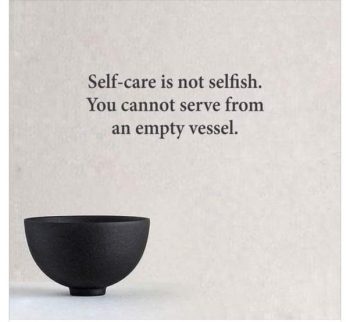Self-Care for Therapists
Would you like to develop a personalized, comprehensive & flexible self-care programme? Watch the video below in which my colleague Clinton Power interviews me about how you can create your own adjustable self-care programme.
I feel passionate about the necessity of applying an all-embracing approach to self-care. I often address self-care issues in my clinical supervision with counsellors, psychotherapists, supervisors, coaches, and other professionals.
The comprehensive approach to self-care that I recommend can also be used by individuals to deal with stress of any kind. Compassion fatigue and burn-out have multi-faceted roots, so they need an equally comprehensive approach for effective prevention.
Standard recommendations for self-care for those in the helping professions are supervision and engaging in our own therapy. Yet the literature on thriving therapists shows these are necessary but not sufficient means to ensure buoyancy in our line of work.
Other factors such as being pro-active in self-care, work/life balance, diversity in work, having robust personalities, empathy to self and focusing on the transcendent nature of therapy and work prove to be far more essential components in maintaining well-being. Ken Wilber’s integral model informs my approach to promoting thriving and well-being in counsellors, therapists, supervisors, coaches and all professionals.
Tracking our client outcomes and relationship
A fundamental support for therapists to engage in self-care is to routinely track our outcomes and relationship with our clients. This takes under two minutes at the beginning & the end of every session. I’ve been using MyOutcomes to track my therapy results for twenty years. Watch my mentor & coach Dr. Scott D. Miller in this 3 three minute video explain how to get training in MyOutcomes to improve your confidence & outcomes with your clients.
Please click here for my article “Self-Care for Therapists”
For a more detailed version, click here “Promoting Thriving for Therapists”
Burnout tests
Quick & free preliminary test http://www.mindtools.com/pages/article/newTCS_08.htm
The gold standard test was developed by Christina Maslach & can be bought here for $20.00 USD.
Conference Papers on Self-Care
Baruch, V., (2006). “New, Flexible, Modular Tools for Designing a Self-Care Programme” at “Landscape Conference” April 28, 2006, Tabor College, Adelaide for SCAPE (Society of Counselling and Psychotherapy Educators).
Baruch, V., (2004). “Self-Care Methods to Promote Thriving in Professional Therapists” at ‘ExperienceSCAPE’ Conference April 23-25, 2004, Dunmore Lang College Macquarie University.
Refereed Conference Paper Proceedings
Baruch, V., (2006). “New, Flexible, Modular Tools for Designing a Self-Care Programme” at ‘Landscape Conference’, April 28, 2006, Tabor College, Adelaide for SCAPE (Society of Counselling and Psychotherapy Educators).
Baruch, V., (2003). “Counsellor Well-Functioning and Self-Care Methods” at ‘Celebrating Counselling’ Conference, November 26, 2003, Parramatta Campus University of Western Sydney.
Seminars & Workshops on Self-Care
March (2009), Australian College of Applied Psychology, “Self-Care for Busy People”.
August (2007), Psychotherapy and Counselling Federation of Australia (PACFA), “Designing a Personalised, Comprehensive Self-Care Programme”.
(2006) Co-facilitator of monthly Integral Life Practice meetings.
November (2005), Counsellors and Psychotherapists Association of NSW (CAPA), “Self-Care for Counsellors” professional development (invited presentation).
Refereed Publications
Baruch, V., (2008). Promoting Thriving for Therapists: An Integral Perspective. Journal of Integral Theory and Practice, 3(4), 103-124. Promoting Thriving For Therapists pdf.
Baruch, V., (2004). Self-Care for Therapists: Prevention of Compassion Fatigue and Burnout. In Psychotherapy in Australia 10(4), 64-68. Self-Care for Therapists pdf.
Baruch, V., (2004). A Therapist’s Journey Towards Integration. In A Reader in Emotionally Focused Work (1st ed.). Annandale: IEFT.
Baruch, V., (2004). A Case Study. In A Reader in Emotionally Focused Work (1st ed.). Annandale: IEFT.
There are more free resources on this page. Read more on my About Me page.

